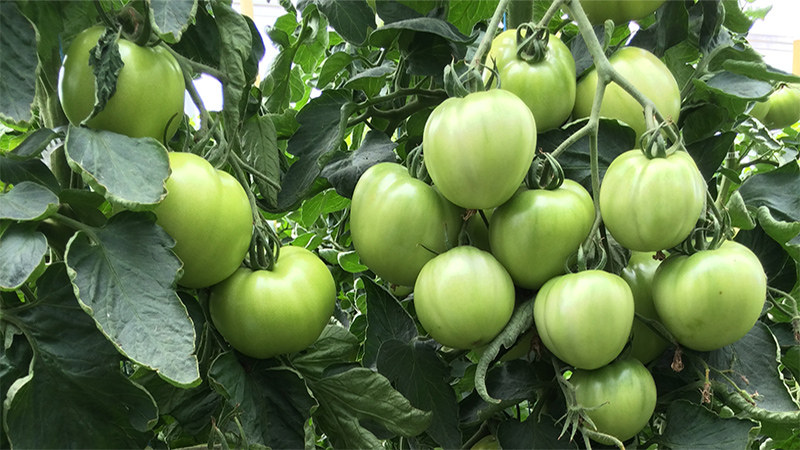Agrochemical Companies Mitigating Risk Amid Coronavirus-Driven Supply, Demand Disruptions
Although the COVID-19 pandemic is primarily a public health crisis, the virus could have a much broader impact on the global economy, leading to worldwide socio-economic disruptions. The evolution of the pandemic during the coming days and weeks will be crucial, and its global impact on the economy or the agriculture sector will very much depend on the time needed to stop the further spread of the virus. The virus has impacted major producers of agrochemicals, from raw materials to finished products.
China is one of the major producers of both active ingredients that form the base of formulated agrochemical products, and the ready-made pesticides sold in many countries. Importers of agrochemical raw materials are facing problems as some Chinese factories remain shut for an unknown time. COVID-19 already has had a negative impact on the entire global economy as China is also a leading country when it comes to imports for the manufacturing sector. This virus has also affected the economy of other countries where China is a major trading partner.
Though currently the Chinese government believes that they can manage the situation and factories should resume work, still the factories must carry out their own safety management and employee protection work. The problem of transportation becomes extremely complicated due to outbreak prevention. So even if the factories have resumed their operation, there might be issues regarding shipping and logistics. For the time being, many shipping companies have suspended their services. The ripple effects of this disruption will be felt through the global supply chains for months to come. With Chinese chemicals ubiquitously used in the global crop protection sector, it is expected that any disruption will affect all types of crop protection products. It is not sure when logistics can return to normal.
Therefore, Chinese factories need to know in time about the situation in the countries and regions where their manufacturers and consignees are located, the location of major export ports, and find potential alternatives in order to be able to operate normally in a timely manner upon receipt of notice to return to work from the government.
Global Agribusiness — Covid-19 and The Effect on Supply Chains
Currently, many countries are in lockdown mode. Having temporarily closed some of their manufacturing plants and placed restrictions on human movements as a means of containing the spread of the virus, demand for production inputs will be affected negatively. Furthermore, restrictions on transportation and people’s movements have led to logistics challenges globally.
Nobody knows what will happen — we can only speculate on what might happen: Agriculture is a labor-intensive industry, but labor might not be available because people are self-isolating, or travel restrictions are in place. Since harvesting, packaging, and transportation have all been affected by strict measures to contain the spread of the virus, stockpiles of food and food produce could build all over the world. The disruption of food produce supply chains might be felt most severely by farmers, small businesses and medium-sized companies. We witnessed a significant decline in global commodity prices in the last week of February 2020, in line with what happened in global stock markets.
For agrochemical companies, disruption of their supply chain will pose some risk as well. Changing suppliers or manufacturers might not be easy, since changing the source of material means the product registration documents will require updates. Unless emergency status is granted by governments, changing or adding a new source may take almost a year, or even longer, before getting approval from any national authority, according to the current pesticide registration regulations in effect in many countries. In this case, you might need to consider other ways you can mitigate damage to your business, such as diversifying into other products. However, if changing suppliers or manufacturers is an option, look into whether you can source products or materials from (for now) unaffected destinations.
The agrochemical industry is already under stress due to inadequate supply and interruptions in timely marketing. This could further deteriorate, and the problems could spread to other industries. Comprehensive measures must be taken to make sure the restrictions imposed to control the outbreak will not potentially lead to halt in agribusiness globally. What you can do to prepare for the potential impact of COVID-19 on your business is ready yourself for operational disruption. It is important to consider how this disruption might affect your business operations and what you can do to minimize its impact. Consider where the manufacturing facilities for your materials or products are located and whether the virus will pose a risk to ongoing supply. Also, do not forget the possibility of delays on distribution routes, due to transport disruption.
The optimist sees the opportunity in every difficulty. Looking at the agricultural commodities under the current circumstance reported by the USDA on Grain: World Markets and Trade, rice exporting countries like Thailand, Vietnam, and Cambodia predict rice prices to rise until mid-year, reflecting concerns about exportable supplies amid drought. In addition, consumers around the world are beefing up their stockpiles, while China will not increase their food exports. In the past couple of weeks, Spanish companies have ramped up production of pasta and rice in Western Europe and the United States to meet the growing demand by consumers worried by the COVID-19 crisis. The virus has had an impact on red meat exports from the U.S., but a number of supply and demand fundamentals and market access improvements have underpinned continued strong export volumes. Despite logistical challenges, a severe decline in tourism and a notable impact on sit-down dining, the overall demand for red meat in these markets is quite resilient. Likewise, the outbreak is not expected to reduce Brazil’s meat production or export demand in 2020.
The agrochemical industry should consider the resilience of the business by reviewing their business continuity plans to address the issues that may impact their businesses. Though on a local scale, there are currently enough products available if farmers only purchase what they need to plant now and do not stockpile. In the coming months, when a shortage of raw materials and products might occur together with further transportation interruptions, the industry could see more significant supply disruption for agricultural chemicals. This may lead to higher prices for such inputs. Agrochemical companies need to bridge possible financial bottlenecks due to the material shortage, production stoppages, and demand in the markets. Under the current circumstances, it is important to ensure the smooth flow of trade and to make use of the international market as a vital tool to secure supply and demand. Global cooperation should be strengthened to avoid disruptions of the global supply chains, and governments should enable policies on financial support and tax waiving, to support agricultural and food production entities.






